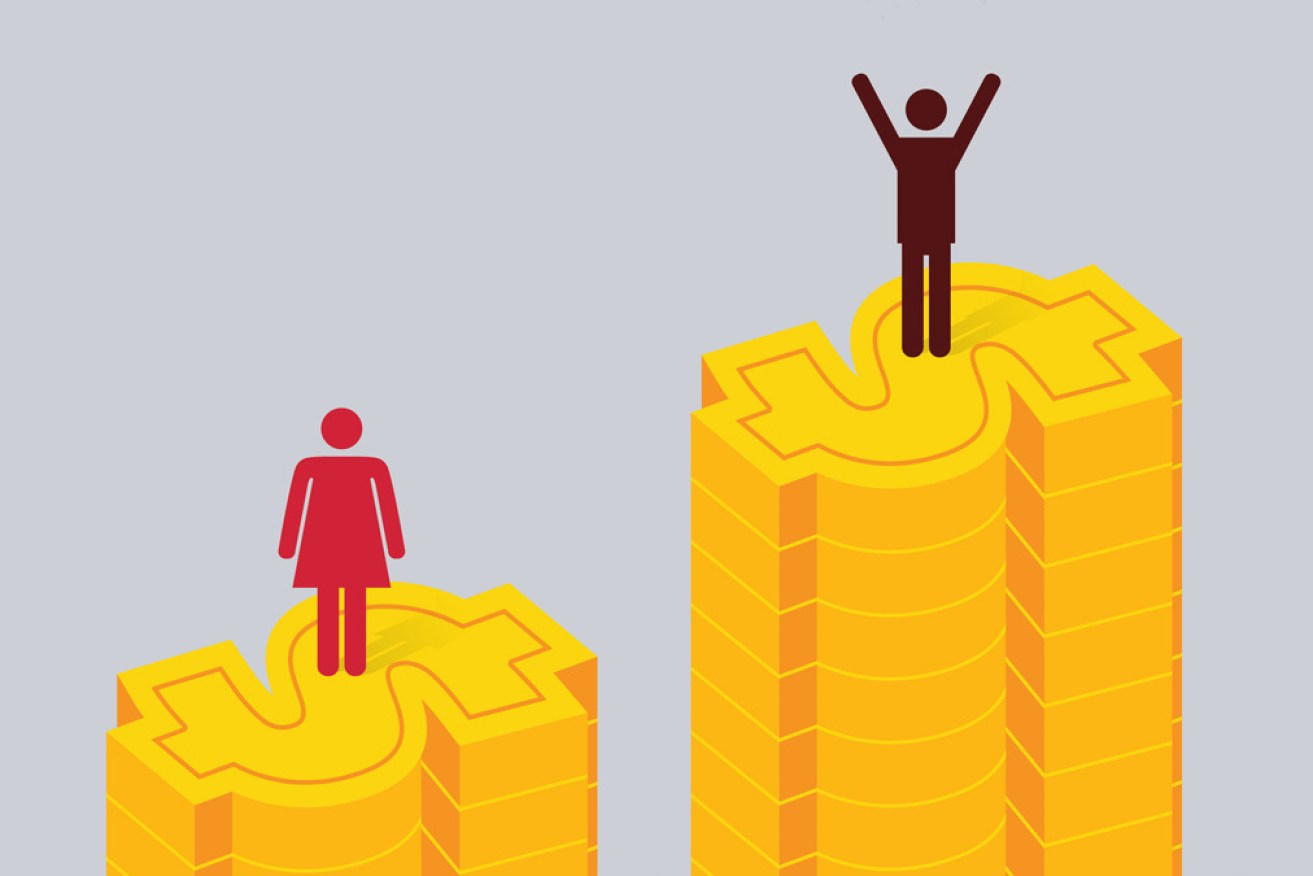Fresh calls for cheaper child care as gender equality deteriorates


A new report suggests it will take 36 years to achieve economic gender equality in Australia. Photo: Getty
Calls for more affordable child care have grown even louder after a new report found the pandemic has dealt a devastating blow to gender equality.
The latest Financy Women’s Index shows that in just four months the pandemic has added four years to the estimated time it will take to achieve economic gender equality in Australia.
A level playing field between men and women is now 36 years away as women have lost more full-time jobs during the pandemic and also picked up most of the extra unpaid work at home.
“Even if we return to the path of improvement seen before the pandemic, we remain a full generation away from achieving equality,” Deloitte Access Economics partner Nicki Hutley said.
The number of women in full-time jobs fell by 5 per cent over the June quarter, from 3.34 million to 3.18 million, whereas the number of men in full-time jobs fell by 3.8 per cent, from 5.53 million to 5.32 million.
As a result, the gap in retirement savings between men and women has widened from 25 per cent at the start of the year to 26 per cent in June.
“Unfortunately, the June quarter’s Financy Women’s Index isn’t one to celebrate because, while there was some good news in terms of the number of women on ASX 200 boards, overall we have seen female progress get dragged down in paid work,” said Bianca Hartge-Hazelman, founder of the Financy Women’s Index.
Females now occupy 31.3 per cent of ASX 200 board positions, up from 30.7 per cent in March.
But the marginal improvement was mirrored by a slight deterioration in the gender pay gap – from 13.9 per cent to 14 per cent – and female workforce participation has fallen to 59.9 per cent, compared to 69.6 per cent for men.
(A 2018 report by KPMG found that halving the gap between men’s and women’s workforce participation in Australia would produce an additional $60 billion in GDP by 2038.)
The report concludes with a lengthy list of recommendations to help reduce financial inequality between men and women.
Among other things, it calls on the government to:
- Improve access to affordable and subsidised child care as well as paid parental leave
- Introduce legislation that requires employers to pay superannuation guarantee contributions while staff are on parental leave
- Legislate pay rises for low-paid, female-dominated sectors
- Implement mandatory pay reporting for all businesses to ensure that men and women are paid the same in like-for-like roles
- Introduce legislation that compels employers with the requisite capacity to provide various flexible work arrangements to maintain staff regardless of gender.
It comes just weeks after the government was criticised for ending its free child care policy in July – a move that advocates warned would force many mums to stay at home and work fewer shifts.
Economists have also criticised the government for stimulating male-dominated industries such as construction, even though women have borne the brunt of the recession.
Angela Jackson, an economist at Equity Economics, told The New Daily in July that policymakers should increase funding to aged care to address the gendered impacts of the recession.
She said this would boost female employment while meeting a broader social need.
“We know the royal commission is going to recommend additional funding to increase quality of care, which is going to mean more jobs,” she said.
“And I think funding that increase today, rather than waiting 18 months, would generate new jobs that are needed in the industry, as we need to be providing quality aged care, and it would also support female employment.”
Asked what the government was doing to address the gendered impacts of the recession, Minister for Women Marise Payne acknowledged that women made up the majority of workers in the industries hardest hit by the pandemic and were doing even more unpaid caring work.
“We also know that when we increase women’s workforce participation, everyone benefits – women, businesses, the economy and the community benefit,” she said.
“That’s why it [is] critical we continue the conversation about how we can focus on women in Australia’s recovery.”










